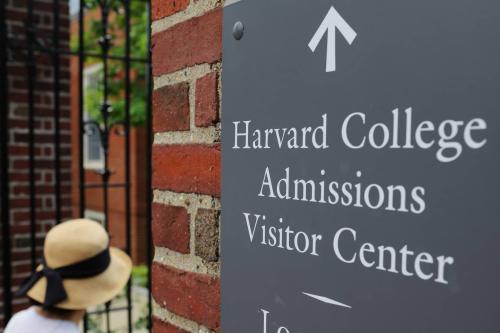2024
A new report from the Brown Center on Education Policy at the Brookings Institution finds that math items on the National Assessment of Educational Progress (NAEP) math assessment lack challenging arithmetic, often requiring skills that are several years below grade level. The findings cast a disturbing light on recent highly-publicized math gains as measured by the NAEP assessment.
Despite sharply rising test scores on both the NAEP Math and most state math tests, the Brown Center’s analysis of the difficulty of the math items at fourth and eighth grade demonstrates that the NAEP test fails to assess essential arithmetic skills that are required for success in algebra and higher mathematics.
“The good news is that NAEP scores have risen dramatically in mathematics over the past decade,” noted Tom Loveless, director of the Brown Center on Education Policy and author of the 2004 Brown Center Report on American Education. “But, given our findings, it is unclear whether this is a significant accomplishment in terms of substantial gains in mathematics skills and knowledge.”
The National Assessment of Educational Progress, or NAEP as it is commonly known, assesses fourth, eighth, and twelfth grade students in math and reading. Scores on the math assessments have risen dramatically over the last 10 years, indicating that U.S. students are becoming more adept at mathematics.
But the Brown Center analysis shows that the NAEP math assessments rely on arithmetic skills that are far below the grade levels of the students being assessed. The analysis finds that almost all problem solving items use whole numbers and avoid fractions, decimals, and percentages – forms of numbers that students must know how to use to tackle higher order mathematics like algebra.
Equally problematic is the fact that, given the low arithmetic rigor of many of these items, many students still fail to answer the questions correctly.
Read Full Press Release (PDF-348 KB)

